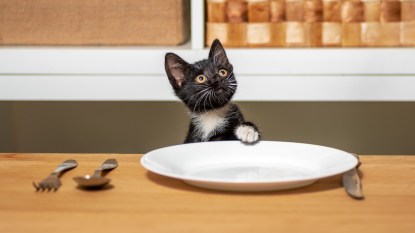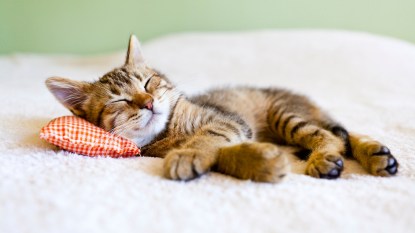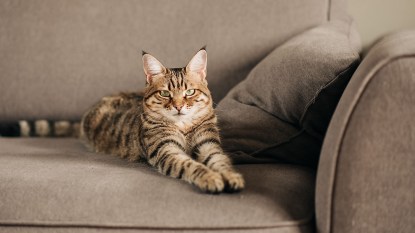Orange Cat Behavior: Vets Explain the Quirks That Make These Colorful Kitties So Special
Orange you glad to read about these cute cats?
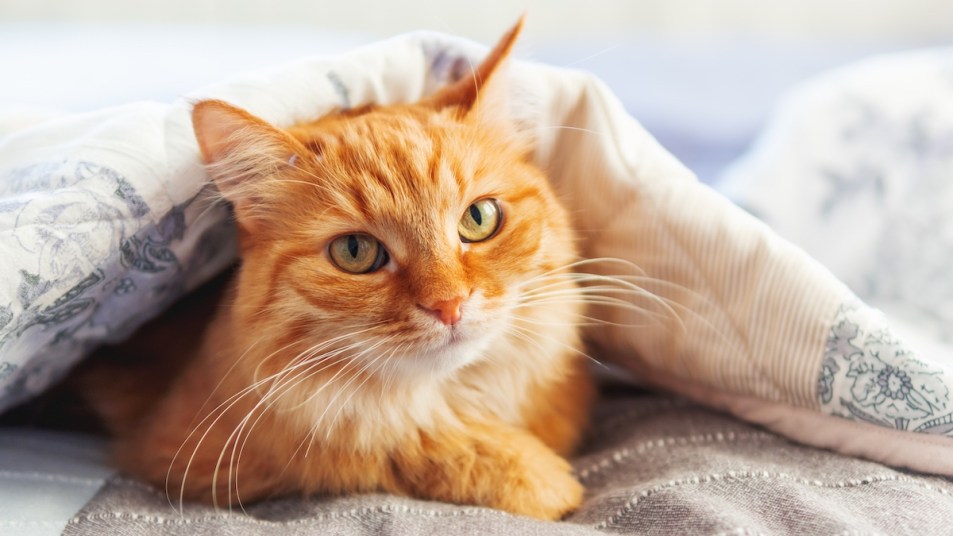
While all cats are adorable in their own ways, there’s something particularly dynamic about an orange cat. The vividly colored fur of an orange cat is like a burst of sunshine, and many orange cat owners report that their feline friends have vibrant personalities to match. It’s no wonder that orange cats — from the lovably lazy comic staple Garfield to the nostalgic cat food spokesman Morris to the brave spaceship cat Jonesy in the sci-fi classic Alien — have long been pop culture icons. More recently, social media has been filled with memes appreciating the distinct silliness of orange cats. So, what, specifically constitutes orange cat behavior? We got the scoop from pet pros.
Orange cats are believed to be fun and friendly
Orange cats are often said to be particularly friendly. “There have been studies that have shown these cats tend to be the friendliest, calmest and easiest to train based on owner feedback,” says Dr. Dwight Alleyne, veterinarian and expert for JustAnswer. He also reports that in his own experience, the orange cats he’s encountered “tend to have a very strong will and sometimes can be quite stubborn,” and notes that some people believe that orange cats are “more likely to engage in risky behaviors.”
Related: Cartoon Cats: Fun Facts About Our Favorite Animated Felines

While studies showing orange cat friendliness are illuminating, they’re meant to be taken with a grain of salt — “based on owner feedback” is the essential phrase here! Such studies are survey-based, which means it’s easy for a cat owner’s confirmation bias to come into play. Many people are drawn to the brightness of an orange coat, and automatically assume it connotes friendliness, and while this is often true, there’s also a sad inverse to be found in how black cats can be overlooked by prospective pet parents due to enduring myths about them signifying bad luck.
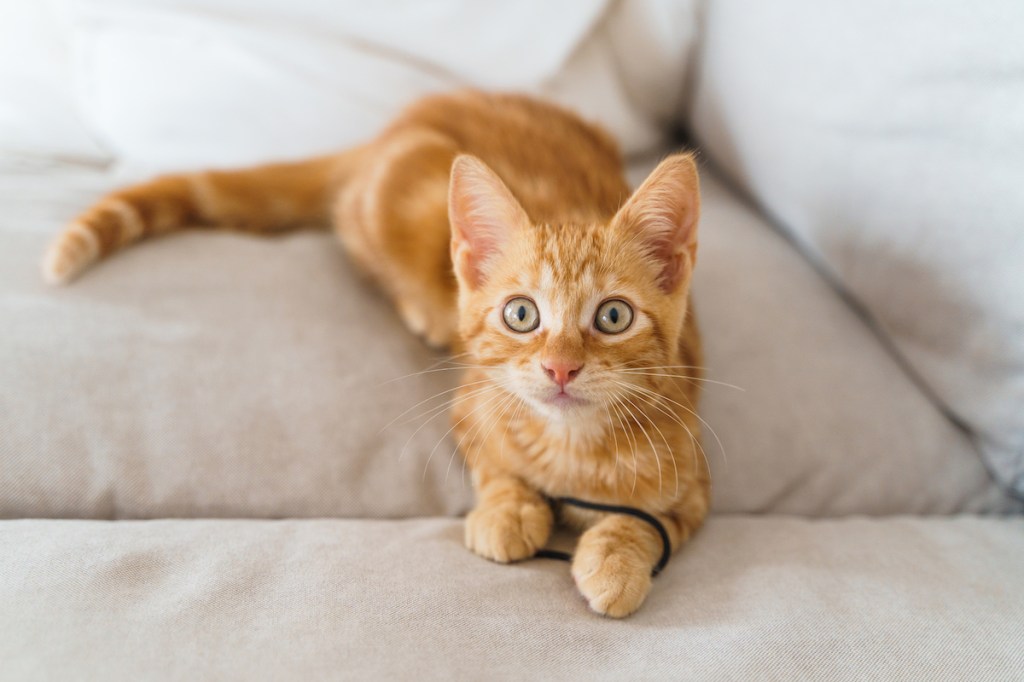
Ultimately, orange cat parents are more likely to believe their felines are friendly, but “there’s no science that says a difference in personality actually exists when you start testing actual cats,” says Dr. Mikel Maria Delgado, cat behavior expert for Rover and author of studies on perceptions linked to cat coat colors.
Orange cats are not a distinct breed
It’s tempting to think of orange as a breed, but this isn’t actually the case. As Dr. Delgado describes, “Orange is a coat color, not a breed, although several breeds of cats may be orange.” Most shelter cats, orange or otherwise, are classified as Domestic Shorthairs (often known as “the mutts of the cat world“) but purebred cats like Persians, Abyssinians, Maine Coons and Bengals can also be orange.
Related: Why Do Cats Have White Paws? Vets Weigh in on the Fascinating Science of Cat Colors
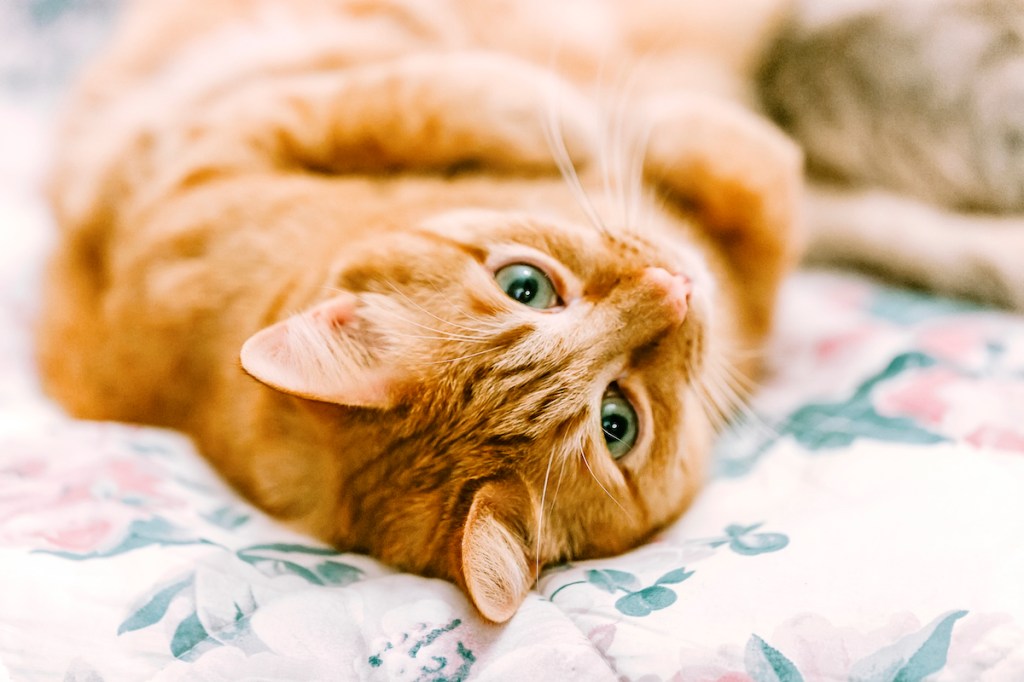
Orange cats also aren’t 100% orange (confusing, we know!). Orange Domestic Shorthairs are tabbies, which mean they often sport stripes or spots in complementary colors like brown or white.
Orange cats are typically male
If you have an orange cat, it’s likely that it’s a boy. “Over 75% of orange cats are males!” says Dr. Annie Valuska, pet behavior scientist at Purina. Wondering why this is? “The gene for orange fur coloration is sex-linked, meaning it is expressed differently in males than females,” says Dr. Delgado. “This gene only occurs on the X-chromosome.”
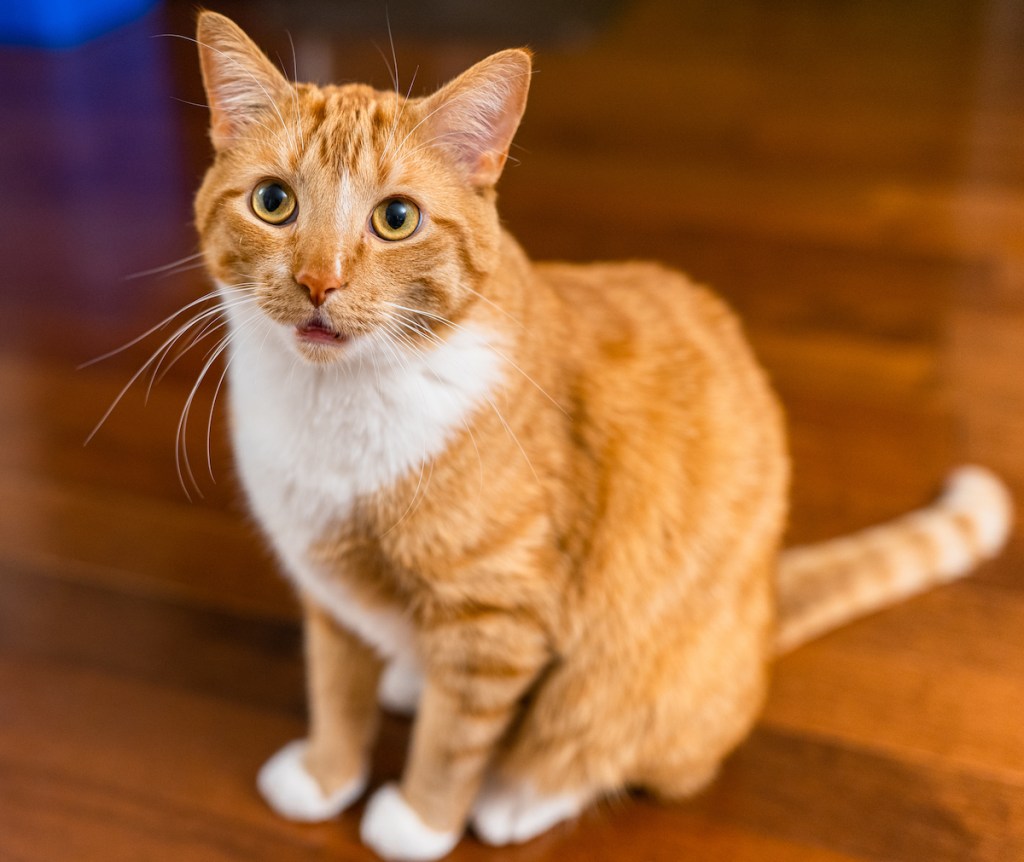
If you’re confused, think back to your high-school biology class: females are XX (two X chromosomes) and males are XY (one X chromosome). This also applies to cats. As Dr. Delgado explains it, “More orange cats are male because males only need to inherit one copy of the orange fur gene to be orange. So if mom is either tortoiseshell or orange, she can pass on the orange gene on the X chromosome.”
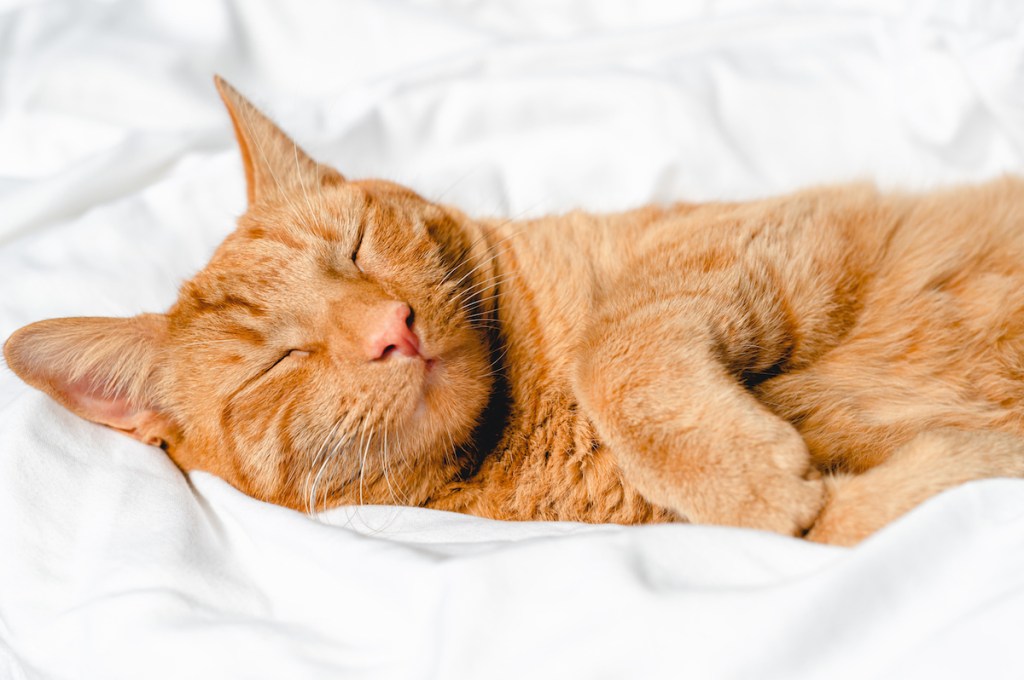
In the rare cases where a female cat is orange, “she needs to have both an orange dad and either an orange or tortoiseshell mom,” says Dr. Delgado. The bottom line? “More mating combinations lead to orange males than orange females.”
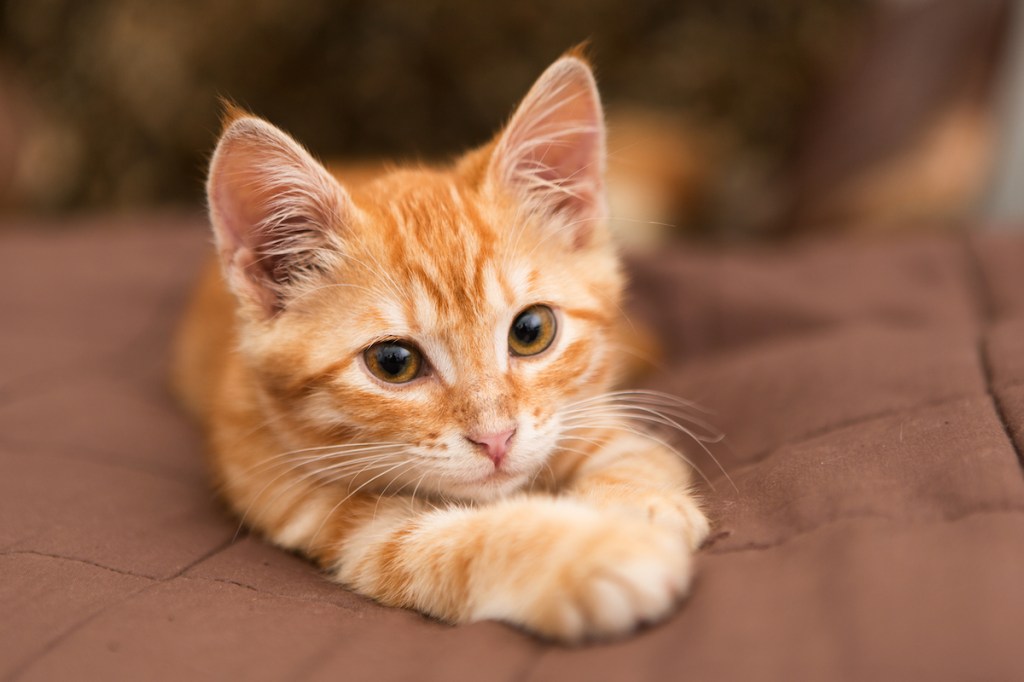
Dr. Valuska points out that just as “it can sometimes be difficult to parse out breed differences and coat color differences, as the two can be linked, because the orange color specifically is sex-linked, the waters can be muddied there, too.” The idea of orange cat behavior raises a tricky question: “Are you seeing sex differences between male and female cats, or true coat color differences?”
The truth about orange cat behavior
So, with all this in mind, is orange cat behavior actually a thing? The experts say no, since reports that orange cats are particularly outgoing are based broadly on surveys of owners and anecdotal evidence, rather than in-depth scientific studies of the cats themselves. “Whether coat color and temperament are linked in cats is quite a complex question!” Dr. Valuska concludes.
Related: Bengal Cat Personality: Vet Explains What Makes This Gorgeous Breed So Unique
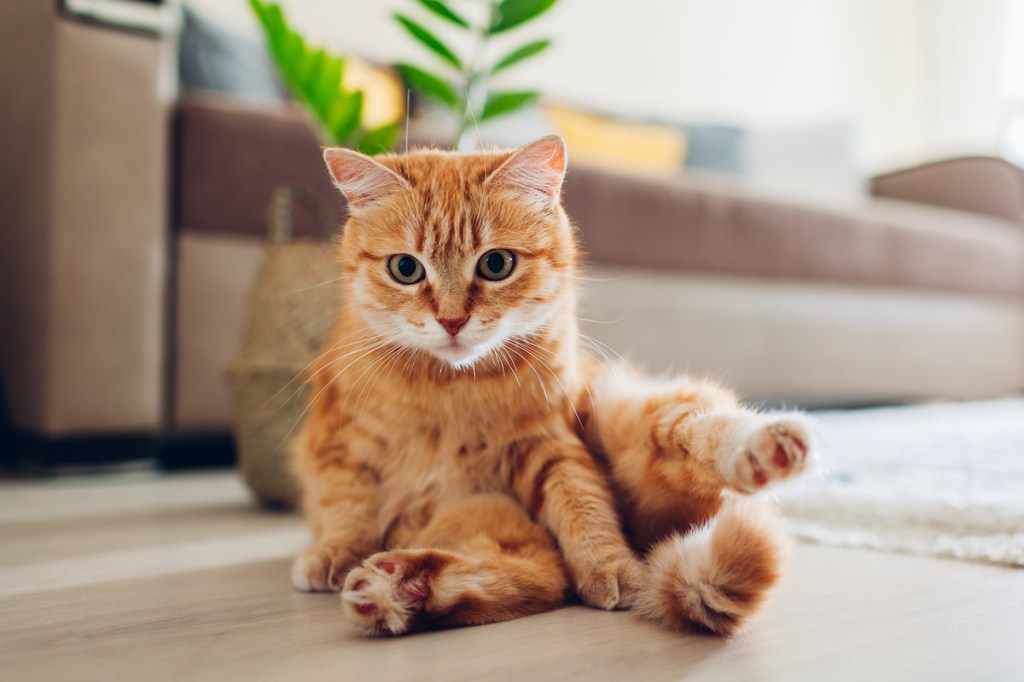
Dr. Valuska sees the orange cat behavior phenomenon as cyclical: “to make things even more complicated, owner perception and expectations can affect how they behave towards their cats, which in turn can affect the cat behavior.” If you think your orange cat is particularly friendly, you’ll likely be extra-friendly to them, and they’ll be extra-friendly back!
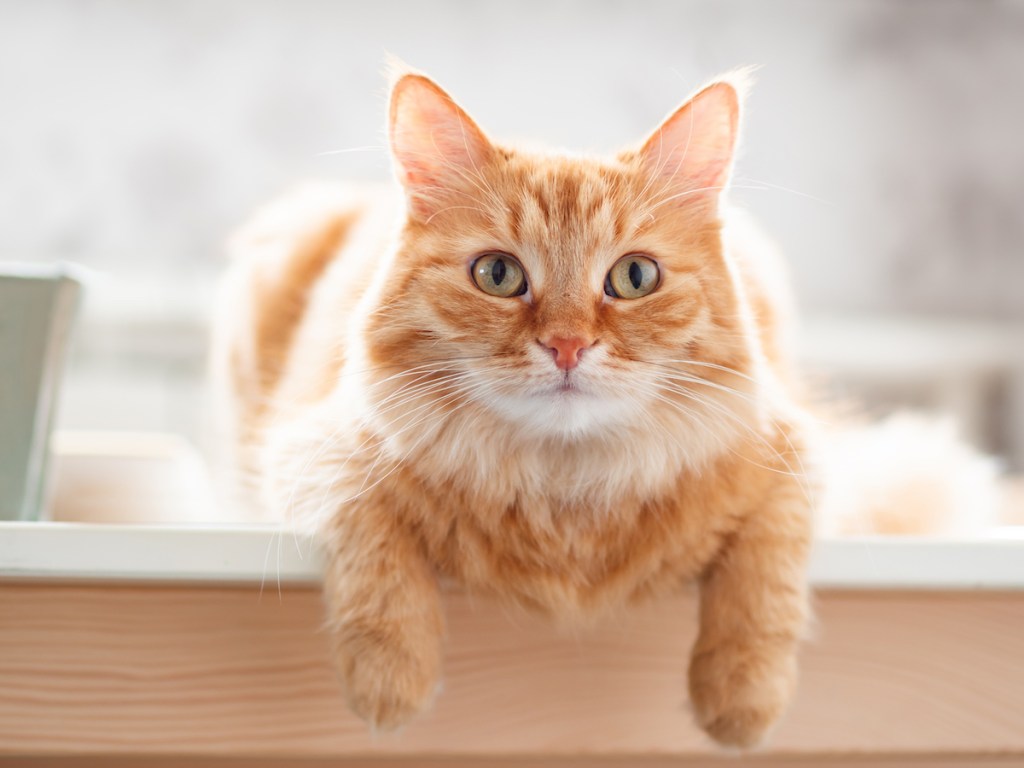
Of course, there’s no harm in seeing your little orange guy as particularly sweet and playful. Just keep in mind that as Dr. Valuska says, “there’s very little definitive evidence in the scientific literature that coat color is a reliable indicator of cat temperament.” She believes that “this is an area that could benefit from more behavioral studies with a larger sample size.” Until those studies happen, we’ll keep enjoying orange cats in all their glory, without claiming their friendliness is biologically determined.
Read on for more about cat behavior!
What Your Cat’s Sleeping Position Reveals: Pet Experts Decode Those Quirky Poses
Why Do Cats Like Shoes So Much? Vets Reveal the Reason for Their Quirky Obsession
Why Do Cats Loaf? Vet Experts Reveal the Sweet Reason Behind This Cute Behavior



